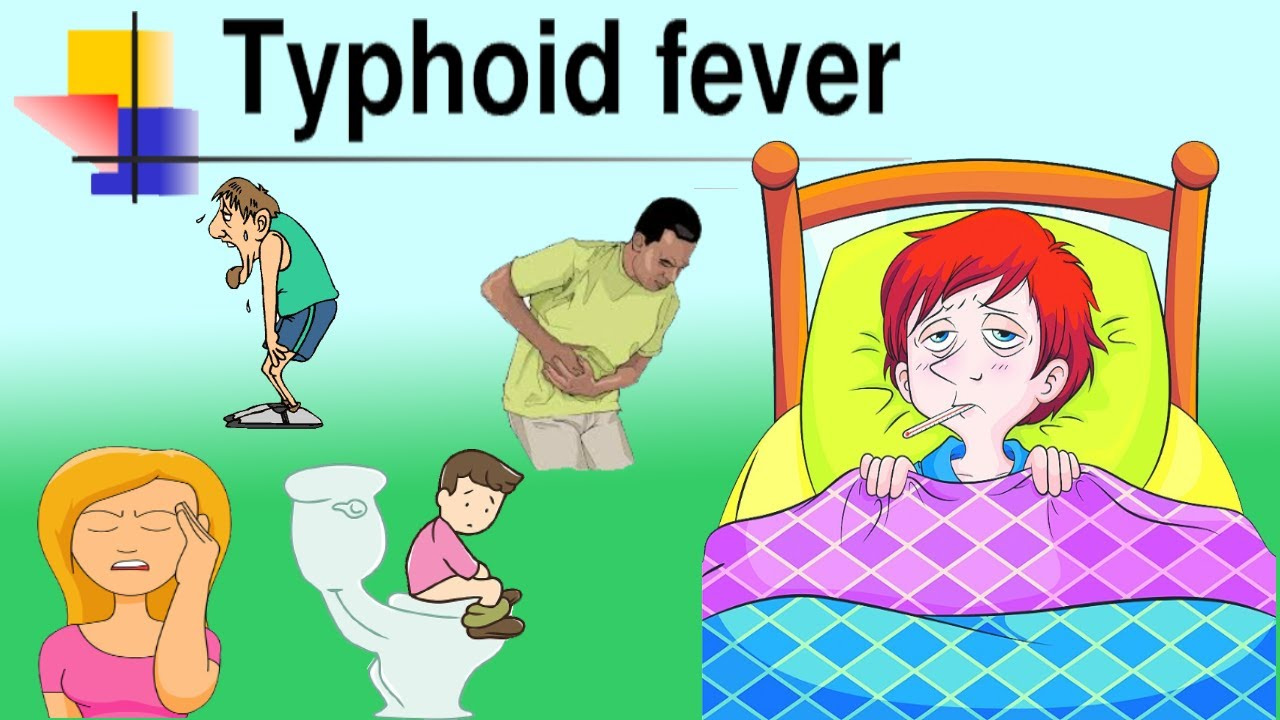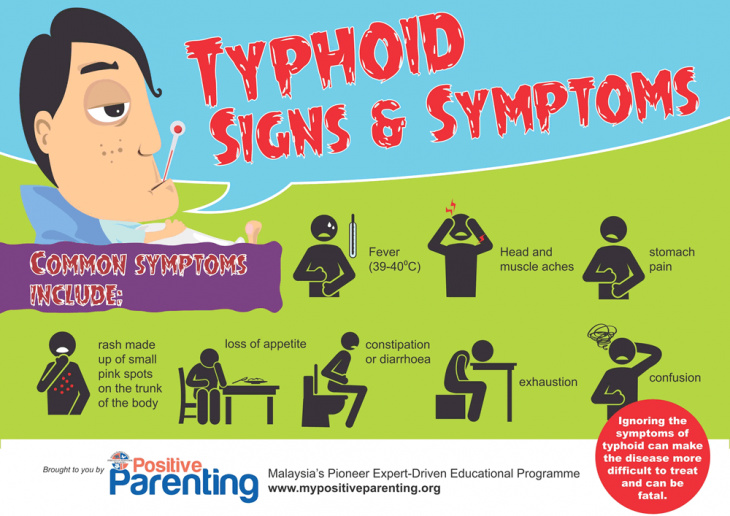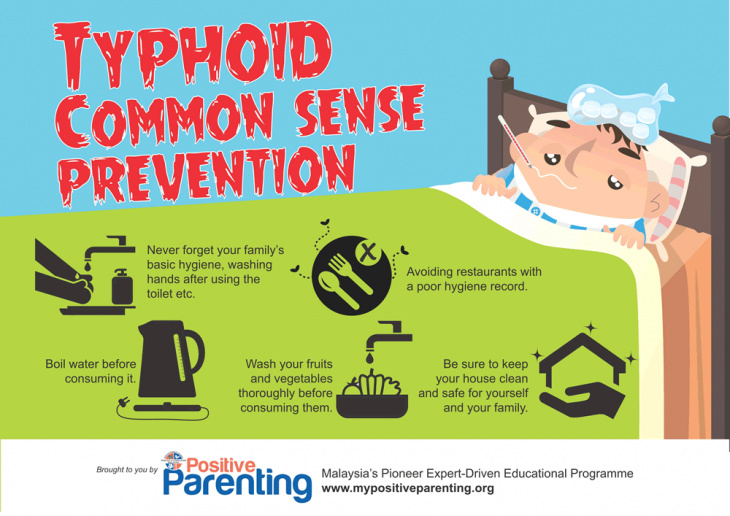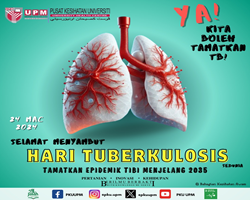Thypoid Fever

Definition
Typhoid fever is caused by Salmonella typhi bacteria. Typhoid fever is rare in industrialized countries. However, it remains a serious health threat in the developing world, especially for children.
Typhoid fever spreads through contaminated food and water or through close contact with someone who's infected. Signs and symptoms usually include a high fever, headache, abdominal pain, and either constipation or diarrhea.
Most people with typhoid fever feel better within a few days of starting antibiotic treatment, although a small number of them may die of complications. Vaccines against typhoid fever are available, but they're only partially effective. Vaccines usually are reserved for those who may be exposed to the disease or are traveling to areas where typhoid fever is common.
Symptoms
Early illness
- Fever that starts low and increases daily, possibly reaching as high as 104.9 F (40.5 C)
- Headache
- Weakness and fatigue
- Muscle aches
- Sweating
- Dry cough
- Loss of appetite and weight loss
- Abdominal pain
- Diarrhea or constipation
- Rash
- Extremely swollen abdomen

Risk factors
- Work in or travel to areas where typhoid fever is established (endemic)
- Work as a clinical microbiologist handling Salmonella typhi bacteria
- Have close contact with someone who is infected or has recently been infected with typhoid fever
- Drink water contaminated by sewage that contains Salmonella typhi
Common complications
- Inflammation of the heart muscle (myocarditis)
- Inflammation of the lining of the heart and valves (endocarditis)
- Pneumonia
- Inflammation of the pancreas (pancreatitis)
- Kidney or bladder infections
- Infection and inflammation of the membranes and fluid surrounding your brain and spinal cord (meningitis)
- Psychiatric problems, such as delirium, hallucinations and paranoid psychosis
Prevention

Vaccine
Recommended if you live in or you're traveling to areas where the risk of getting typhoid fever is high.
Other prevention
- Wash your hands..
- Avoid drinking untreated water.
- Avoid raw fruits and vegetables.
- Choose hot foods.
Diagnosis
Medical and travel history
Your doctor is likely to suspect typhoid fever based on your symptoms and your medical and travel history. But the diagnosis is usually confirmed by identifying Salmonella typhi in a culture of your blood or other body fluid or tissue.
Body fluid or tissue culture
For the culture, a small sample of your blood, stool, urine or bone marrow is placed on a special medium that encourages the growth of bacteria. The culture is checked under a microscope for the presence of typhoid bacteria. A bone marrow culture often is the most sensitive test for Salmonella typhi.
Treatment
Commonly prescribed antibiotics
- Ciprofloxacin (Cipro).
- Azithromycin (Zithromax).
- Ceftriaxone
Source: https://www.mayoclinic.org/diseases-conditions/typhoid-fever/symptoms-causes/syc-20378661
Article by: Mohd Nizam Ahmad Sarifudin,
Medical Laboratory Technologist, UPM.
Date of Input: 19/09/2018 | Updated: 19/09/2018 | izzatussofia
MEDIA SHARING































